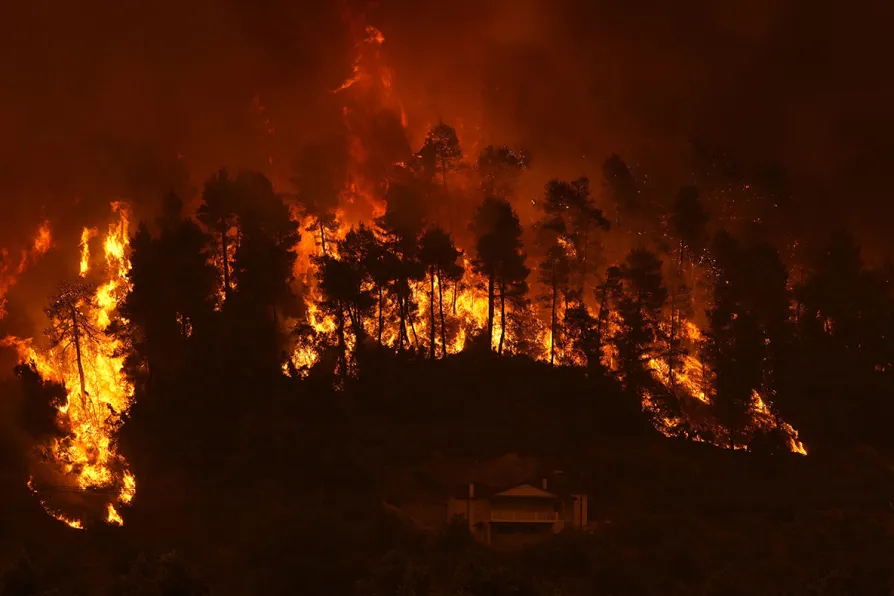UN report sets out stark reality of the climate crisis ahead of COP26 summit

 Flames approaching at Gouves village on the island of Evia, about 115 miles north of Athens, Greece, Sunday, August 8, 2021
Flames approaching at Gouves village on the island of Evia, about 115 miles north of Athens, Greece, Sunday, August 8, 2021
A NEW United Nations report sets out a stark message on the state of the climate crisis, raising pressure on governments in the run-up to the crucial COP26 summit in Glasgow this November.
The report by the UN Intergovernmental Panel on Climate Change (IPCC), published today, is the first part of a review of current scientific knowledge about how the world is warming due to human activity.
Its message is expected to be even stronger than that of the previous IPCC report in 2013, with estimates of how soon global temperatures could rise 1.5°C above pre-industrial levels, which experts warn would have dangerous consequences for humanity.
More from this author

It is ‘unfathomable’ that staff are having to keep doors and windows open and ask pupils to layer up for a second winter, Scottish Teachers for Positive Change and Wellbeing says
Similar stories

TOM HARDY traces how these climate conferences have been captured by fossil fuel interests while CO₂ levels have continued to rise since 1995 — but XR’s citizen assemblies and direct action have offered an alternative














